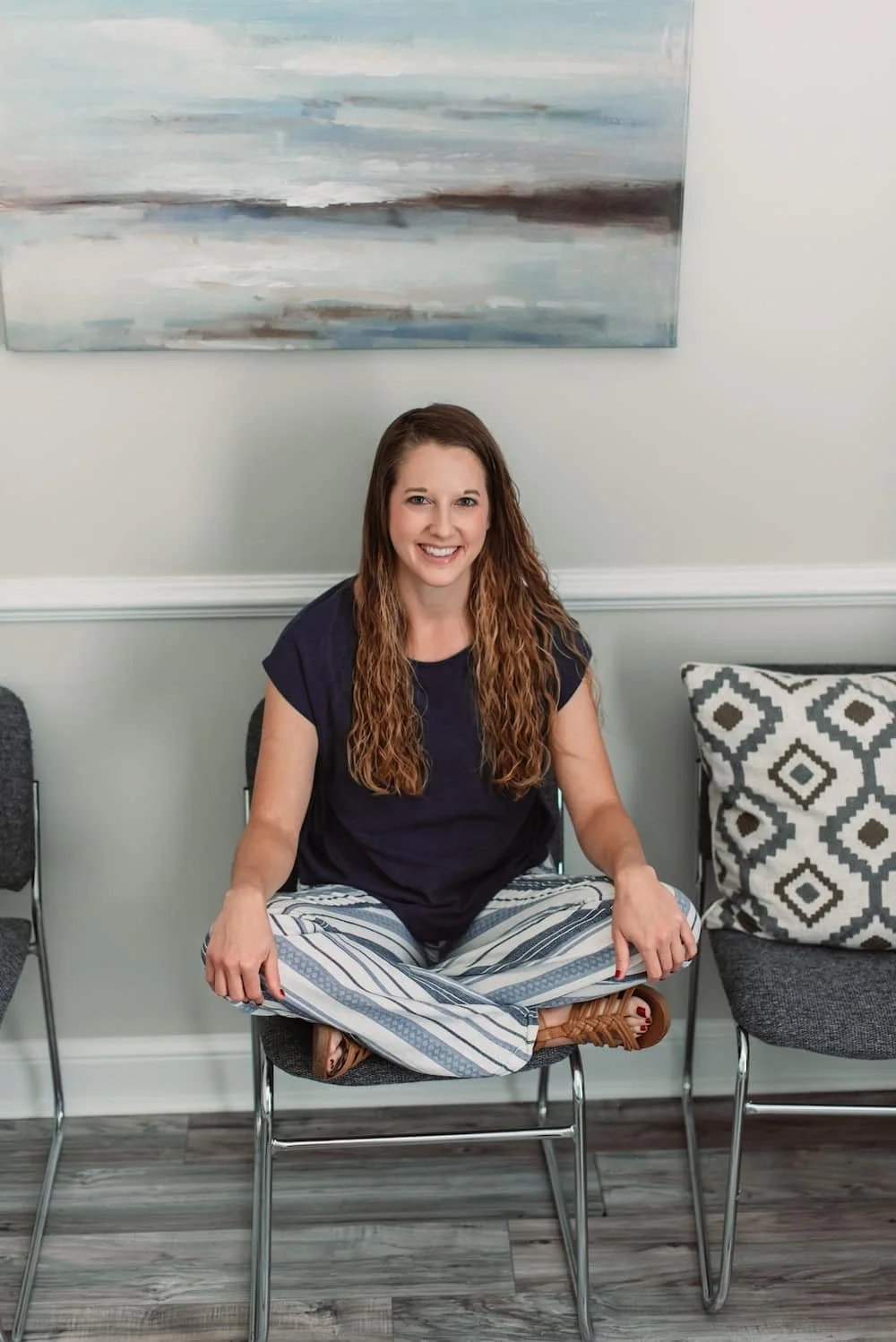
TRAUMA THERAPY in Augusta, GA
You’ve tried to “get over it,” but deep down you know painful experiences from the past and old childhood wounds are holding you back.
Do you feel like you’re doing “mostly fine,” but sometimes your past still sneaks up on you?
Do you ever feel guilty for being negatively impacted by your past, even though you “had a good childhood”?
Are you afraid people would see you differently if they knew what you went through?
It’s not always the big traumatic events that impact us. Sometimes the small, everyday experiences leave the deepest wounds.
Life when you were growing up was mostly good, but you didn’t make it through childhood without at least a few scars.
When you feel pain from your past, you catch yourself thinking “I should just be grateful” and stuff your emotions back down.
You feel like you “shouldn’t” complain about anything from your upbringing because others “had it so much worse than me.”
Sometimes you’re even a little confused about why this stuff still bothers you anyway… “I’m an adult now, shouldn’t I just be over it?”
Whether you experienced Big-T traumas or little-t traumas, working with a trauma therapist can help you finally put the past to rest.

Trauma isn't always obvious.
When we think about trauma, most of us think about the big kinds. Things like childhood sexual abuse, neglect, fighting in combat, physical assault, or being in a natural disaster (hurricanes, earthquakes, tsunamis).
If you haven’t lived through these types of trauma, you might not realize that the past can still be impacting you.
Little-t traumas are events that aren’t necessarily life threatening, but still cause deep emotional wounds that shape who you are now. Bullying, frequent criticism, extreme social rejection or isolation, painful breakups, difficult parental divorce, or growing up in a household where your emotional needs weren’t met are all examples of little-t traumas.
Little-t traumas can still cause serious damage.
The specific type of trauma you experienced isn’t as important as HOW that trauma impacted you.
When you experience trauma, changes happen in your brain and nervous system. It’s very common for your body to actually get stuck in survival mode. This means you are often on high alert, watching everyone very closely, and never feeling like you can truly let your guard down until you’re alone. You might prefer animals to people.
When you interact with others, you might be very aware of their body language and notice any subtle shift. You might often wonder if people are even being truthful with you.
You might frequently feel anxious, jumpy, and on edge. Or you might feel detached, depressed, and disconnected.
You could find yourself wanting to avoid anything that reminds you of painful memories. Avoiding places, people, and even attempting to avoid your own thoughts or emotions about it.
If you feel like your past is still influencing you, working with a trauma counselor can help you heal and move forward with a new sense of inner peace.
Trauma Therapy can’t erase what happened to you, but it can help you leave it in the past.
When you experience a traumatic event, your brain stores that memory in high definition. These memories are different from your everyday memories because they have a lot more detail to them. Your brain remembers all the things…where you were, what you were wearing, the song playing in the background, how your palms were sweating, the moldy smell of the room.
Because traumatic memories are so intense, you can get pulled into them very easily. The same song playing on the radio could take you back as if you are living the moment all over again.
If you feel like you’re always in fight-or-flight, trauma treatment can help you get out of survival mode. While it can’t remove traumatic memories, it can help reprocess them so they are stored in low definition, which makes them less intense and more manageable. It can also help your nervous system learn the difference between burnt toast and the house being on fire.
What to Expect in Therapy Sessions
Before the first session, you’ll be asked to complete new client paperwork through my online portal. This paperwork covers your history, present difficulties or struggles, and what you want to focus on in therapy.
During our initial meeting, my focus is to get to know you as a person and understand how trauma or difficult life experiences have impacted you. Together, we’ll create a treatment plan to address trauma. The plan is always flexible and can be adjusted if new things come up.
The goal of trauma counseling is to help the parts of you that were the most wounded by your past experiences to be seen, heard, and felt, so that they can truly heal. Throughout sessions, we will monitor how your body is responding to what we are talking about. If your body (nervous system) signals us that we need to slow down, we will always follow its guidance. Therapy will teach you how to monitor your body’s reactions and how to teach your body when it’s safe.
My Treatment Approaches
I offer a holistic approach to counseling, integrating mind-body-spirit for deeper, longer lasting healing, while also incorporating evidence-based treatment modalities, including:
Internal Family Systems (IFS) helps us connect with the parts of you that were the most impacted by traumatic experiences. We allow these parts to tell their stories so that they don’t continue to be burdened by the past.
Cognitive Behavioral Therapy (CBT) can help you identify unhelpful thoughts or beliefs that you developed about yourself or the world because of your experiences and teach you how to shift away from those thoughts.
Polyvagal Theory (PVT) helps us understand how trauma is impacting your nervous system so that we can move through trauma therapy in a nervous system friendly way.
Reiki Healing is an energetic approach that strengthens the body’s natural ability to heal itself. It can help remove energetic blockages that were created from trauma. Reiki can be offered as a standalone service, but is also beneficial when integrated into an in-person counseling session in Augusta, GA.
Any combination of these approaches can help release the load that trauma has put on you.

The idea of talking to a therapist about trauma might feel uncomfortable and it’s normal to have questions before starting trauma treatment.
1. Will I have to go through my trauma(s) in detail in order to heal?
No. In trauma counseling we are more focused on the impact of trauma rather than the specific details of it. As a counselor, my goal is to help you understand what changed about you because of the trauma (i.e., your beliefs, thoughts, emotions) and that doesn’t require you to relive every detail.
2. What if I’m worried that talking about my trauma means I’ll be “trauma dumping” on my therapist?
As a counselor, I have been trained on how to hold space for you as you process through your trauma. I am also a Reiki Master (energy healer), which means I am able to protect and clear my own energy field without absorbing the energy or trauma of others.
3. If I had “good parents,” is it still okay to talk about ways my childhood negatively impacted me?
Absolutely. Even if you had a good childhood overall, you’re still allowed to have feelings about the not good or painful parts. Therapy can help you hold space for two truths at once. Your parents were probably doing the best they could AND they still could have hurt you, even if it was unintentionally.
Healing can happen when you turn toward the parts of you that were wounded instead of pretending they don’t exist.
If you’re tired of the weight of the past impacting you in the present and you’re ready to start trauma counseling, you can Schedule a Session here.
If you’re still on the fence, you can use my Contact Form to ask questions or book a complimentary 15-minute consultation.








